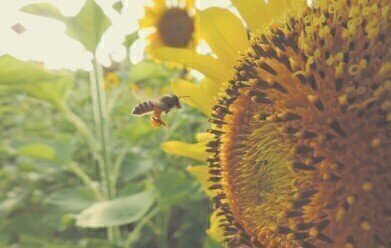Health & Safety
Are We Heading Towards a Ban on Bee-Harming Pesticides?
Apr 19 2017
There’s no doubt about it – the number of bees is declining. One previously common species, the rusty patched bumble bee, has even been placed on the endangered list in the US. And the problem is only getting worse. Read on to see how a ban on bee-harming pesticides could help the plight of the bee.
Save the bees
Bees are hugely important to our day-to-day lives. They perform around 80 percent of pollination around the world. And a single colony of our insect friends can pollinate about 300 million flowers in a single day. But what does this actually mean? To put it simply, bees are essential in the production of what’s on your plate. They pollinate 70 of our top 100 crops, making up for 90 percent of the whole world’s nutrition.
Remove bees from the process and we’re reliant on the small amount of foods that are pollinated by other means. Grains, for instance, are pollinated by the wind. And that prospect is looking increasingly likely, with 42,000 bee colonies lost each year in the US alone. So who’s to blame?
Taking the blame
Unfortunately, it’s not as simple as pointing the finger at one cause. There are several factors contributing to the decline of bees. Global warming, air pollution, drought, habitat destruction and, of course, pesticides to name just a few. But what is simple is finding which we can fix. All of the causes are related to human activity, but it’s not so easy to undo global warming.
With pesticides, on the other hand, we can identify those which are harmful to bees and act against them. That seems to be the idea behind draft regulations from the European commission, who want to completely ban pesticides that pose “high acute risks to bees”. Their plans are based on research by the European food Safety Authority (Efsa), who found a range of high-risk pesticides including thiamethoxam, clothianidin and imidacloprid.
Complying with European rules
As it’s still in the draft stage, it might be some time before we see the pesticide ban put into place. But in the meantime, member states will be focussing on other rule changes, like the EU Directive on Medium Plant Combustion. Beginning in December 2015, the directive has a final transposition date of December 2017 for member states. Read more about how it will affect British companies, in the article ‘The European Union’s Medium Combustion Plant Directive – Monitoring and Compliance requirements’.
Digital Edition
IET 34.2 March 2024
April 2024
Gas Detection - Biogas batch fermentation system for laboratory use with automatic gas analysis in real time Water/Wastewater - Upcycling sensors for sustainable nature management - Prist...
View all digital editions
Events
Apr 30 2024 Melbourne, Australia
Apr 30 2024 Birmingham, UK
May 03 2024 Seoul, South Korea
May 05 2024 Seville, Spain
May 06 2024 Minneapolis, MN, USA


















